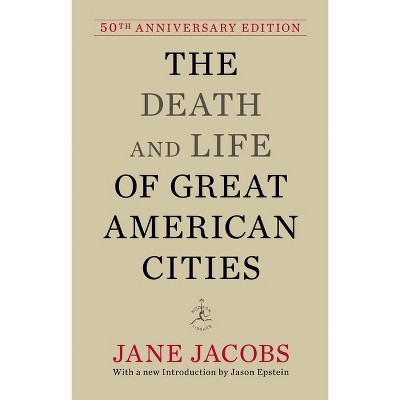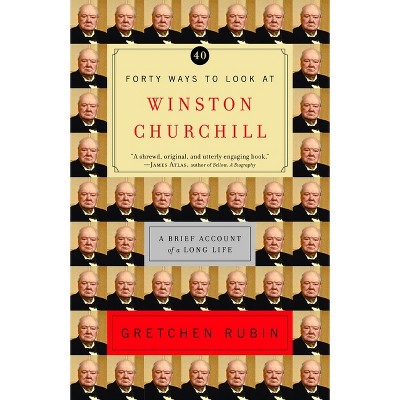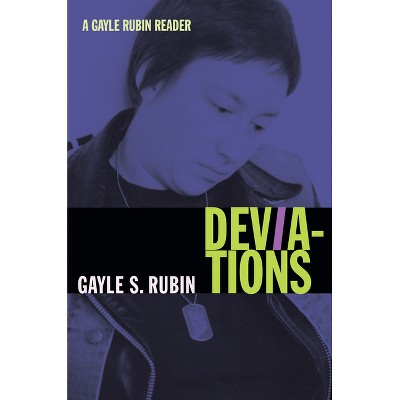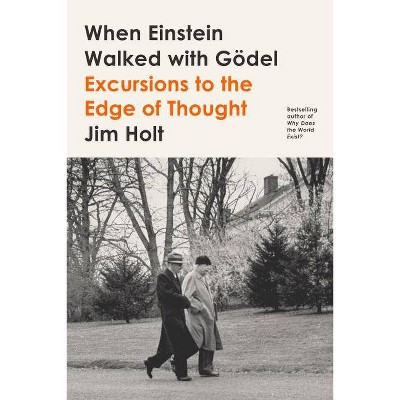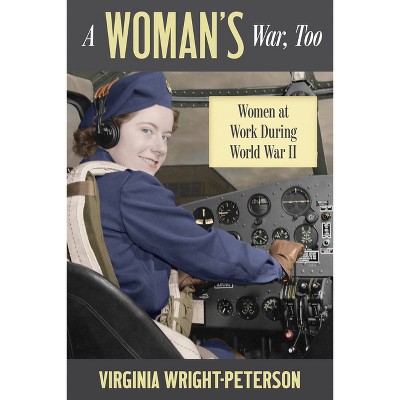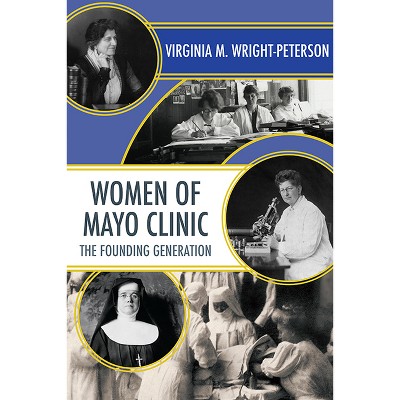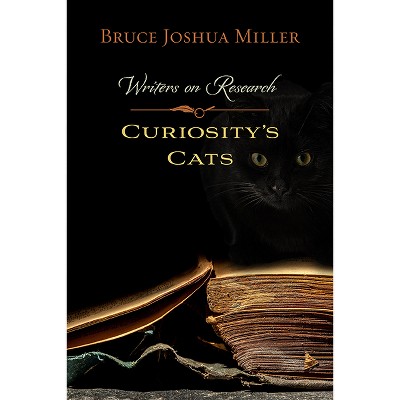Sponsored

Rochester - by Virginia Wright-Peterson (Paperback)
In Stock
Sponsored
About this item
Highlights
- A concise history of Rochester, featuring stories that are familiar, surprising, and sure to change the way you see the city.
- Author(s): Virginia Wright-Peterson
- 180 Pages
- History, United States
Description
About the Book
"Rochester, Minnesota's third-largest city, has always been a crossroads. For untold centuries, Dakota and Ho-Chunk people lived in this beautiful area around the Zumbro River. The town itself began in 1854 as a stagecoach stop for people traveling between St. Paul and Dubuque, Iowa. In this brief and entertaining city history, Virginia Wright-Peterson explores fascinating stories of the community: the karst geology and cave systems in and around town; the importance of the region's agriculture; the regular, troublesome flooding of the Zumbro River; hidden histories held in the unmarked graves of Potter's Field; the Cyclone of 1883 and the world-famous Mayo Clinic it spawned; the roles that the city's women have played in business, government, and community organizations; the growth and contraction of IBM-Rochester, a major computer design, development, and manufacturing center; and Destination Medical Center, a twenty-year plan to develop the area as a global destination for health care and the largest public-private economic initiative in Minnesota's history. Cities, like people, are always changing, and the history of that change is the city''s biography. This book illuminates the unique character of Rochester, weaving in the hidden stories of place, politics, and identity that continue to shape its residents' lives"--Amazon.com.Book Synopsis
A concise history of Rochester, featuring stories that are familiar, surprising, and sure to change the way you see the city. Rochester, Minnesota's third-largest city, is best known for its world-renowned medical facility, the Mayo Medical Center--yet its history and contemporary life are filled with countless other stories, people, and pivotal moments. Rochester has always been a crossroads. For centuries, Dakota and Ho-Chunk people have lived in this beautiful area around the Zumbro River. The town itself began in 1854 as a stagecoach stop for people traveling between St. Paul, Minnesota, and Dubuque, Iowa. In this brief and engaging history, Virginia M. Wright-Peterson explores fascinating stories of the community: the area's indigenous people; the importance of the region's agriculture on the karst, driftless, prairie landscape; the persistent flooding of the Zumbro River; the hidden histories held in the unmarked graves of Potter's Field; the cyclone of 1883 and the famous medical center it spawned; the emergence of an increasingly diverse community; and Destination Medical Center, a twenty-year plan to develop the area as a global destination for health care--and the largest public-private economic initiative in Minnesota's history. Cities, like people, are always changing, and the history of that change is the city's biography. This book illuminates the unique character of Rochester, weaving in the stories of place, politics, and identity that continue to shape its residents' lives.Review Quotes
"In Rochester: An Urban Biography, Virginia Wright-Peterson not only captures the intricacies that make our city one of a kind but also places a much-deserved emphasis on Rochester's Dakota and Ho-Chunk roots. This book offers a renewed and timely look at the diverse events that have cultivated our city of compassion and innovation by not only exploring our history but also envisioning the milestones yet to come."
Kim Norton, mayor of Rochester
"This engaging narrative will surprise anyone who only knows of Rochester, Minnesota, as the home of Mayo Clinic. Virginia Wright-Peterson mixes stories of people, places, and events as she sketches a portrait of a city with a distinctive, and sometimes troubling, past, present, and future."
Thomas F. Weber, Rochester journalist and historian
"A city's big story is the one it tells about itself, a story that celebrates successes and helps it grow. But it's the other stories, the hidden histories, that can reveal what sits beneath our unresolved problems. Virginia Wright-Peterson demonstrates why these richly illuminating narratives should come from multiple perspectives. And knowing about this complicated history can help our city live up to the legacy we claim."
Mia Erickson, board president, Diversity Council, Rochester
Shipping details
Return details
Frequently bought together
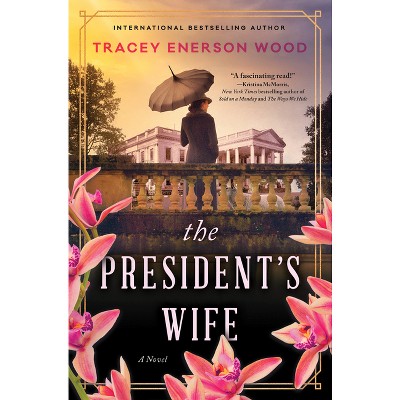

Trending Non-Fiction






